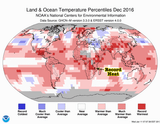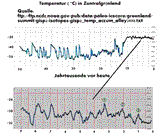>>937892263
>Venus isn’t being continuously compressed
Gravity isn't constantly exerting a force on the "air" around Venus?
>Its pressure is the result of mass and gravity
Exactly. Well, and the amount of gas that is being compressed. This is why Mars is so cold, besides being further from the sun.
>Once pressure is established, no more energy is added
So the Grand Canyon only gets hot once at the bottom?
>Without a strong greenhouse effect, Venus would cool just like any other object in space
Why would it just cool? It's a ball of dense gas being heated by the sun? Greenhouses effect plays no part in this equation, or any equation really, it's just some voodoo middleman. What's your version of the greenhouse effect, because there are a few. There's the backradiation hypothesis, the "air is heat-soaked" hypothesis, and, shit, I forgot the 3rd popular one just now. How would these concepts work on a planet where the surface barely receives any sun? Is the heat-soaked CO2 only trapped in the upper layers where the sun hits it? Backradiation surely can't apply on such a dim surface.
>High-pressure weather systems on Earth can bring warmth, but that’s because they create subsiding air
This is basic stuff, anon. High pressure worms and low pressure cools. We can measure the high pressure front before it gets to [location], do some math with delta millibar, and predict how much hotter it will be.
>Feldman
That's the guy I couldn't remember! I brought him up somewhere above. The fuckin guy could only find a miniscule change in temps, like .02 W/m2 or someshit, but it turned out he couldn't account for the change in waver vapor and that alone was dwarfing his measurements so he turned to modelling to simulate a CO2 signal. He actually (re)discovered the correlation between water vapor and temp, or temp and water vapor in regard to clear sky conditions.


